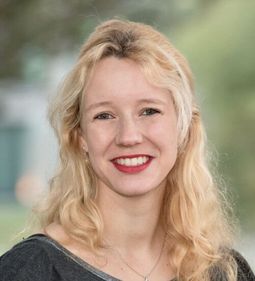As the COVID-19 crisis deepens worldwide, a team of Montreal researchers in bioinformatics is using artificial intelligence to trace the genetic profile of the coronavirus responsible for the pandemic.
"Since its appearance in China, the virus has evolved, and we need understand it in order to develop a vaccine or treatments tailored to each patient," said researcher Julie Hussin, an assistant professor in the Faculty of Medicine at Université de Montréal.
Working at the Montreal Heart Institute (MIH) with researcher Jean-Claude Tardif, who this week launched the ColCorona study to test a drug on 6,000 Canadian patients with COVID-19, Hussin and her colleagues are trying to track the enemy virus right down to its genes.
"Picture it like a tree: the base of the trunk is the first virus, passed from bats to humans, then came the many mutations, up the trunk and into all the branches," Hussin said. "What we'll try to give is the most accurate picture possible of the virus, using RNA collected directly from living strains in different parts of the world, particularly in Quebec."
Drawing on their expertise in population genetics, statistical genetics and deep learning, and working with the UdeM-affliiated computer-science institute Mila and a young start-up called InVivo AI, Hussin's team will analyze viral sequences at various stages of their evolution. They'll target Indicators associated with geographic regions where patients have tested positive for COVID-19.
"Specifically, we're interested in the virus-host interactions of virus strains that may affect humans differently depending on ethnicity, gender, age, co-morbidities, prescribed drugs and personal genetic profile," the researchers write in their project description. Such knowledge is essential to understand how the epidemic is evolving and to design therapeutic solutions, they said.
Computers for biology
As its name suggests, bioinformatics seeks to solve biological problems through computer calculations. Since a virus is a living organism, bioinformaticians believe they can narrow down its genetic makeup and various mutations, using powerful computers. Results are not yet in, but the virus is the subject of worldwide attention in thousands of specialized laboratories.
To prepare, Hussin's laboratory first immersed itself in the vast scientific literature on COVID-19, which already includes dozens of articles, with as many as 400 published on the coronavirus genome. "Many Chinese teams focused on this coronavirus and disseminated their results in record time," they explained. "This is very useful to us, but we need to start research on a broader scale, as these studies are often limited to one or two mutations."
A fascinating virus
This new coronavirus is particularly fascinating for researchers because of the efficiency of its mode of propagation. Within a few months, it has spread to many nations and continues to progress. A very large number of base pairs that make up its DNA have already mutated. Responding to the process of natural selection, the best adapted mutations survive and in turn spread, potentially making the virus even more efficient.
This process is precisely what Hussin has made the focus of her research with geneticists at UdeM. She completed her master's degree with Damian Labuda on the processes of natural selection of human populations and subsequently specialized with Philippe Awadalla on other aspects of the evolution of the genome in relation to human health.
Originally from Belgium, the young researcher completed her postdoctoral studies at the University of Oxford before accepting a position in UdeM's medical faculty in 2017. She is also a professor-member of the Institut de valorisation des données (IVADO) and a Junior 1 Fellow of the Fonds de recherche du Québec-Santé at the MHI.
She currently teaches the Population Genetics and Epidemiology course at UdeM's Faculty of Medicine. Her work is funded by IVADO, Génome Québec and various international organizations.







